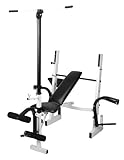 I have been reading raw food diet books in an effort to find some proof that this might actually be a better way of living. I am scouring all these books in an effort to find some (any) medical data or scientific proof that supports the claims of the raw food proponents.
I have been reading raw food diet books in an effort to find some proof that this might actually be a better way of living. I am scouring all these books in an effort to find some (any) medical data or scientific proof that supports the claims of the raw food proponents.
Unfortunately, this sentence is on the first page of the preface for Living Cuisine: The Art and Spirit of Raw Foods:
“Empirical knowledge is not absolute. My theory is that change is the only constant; take what you know and go with your gut (especially with food where your guts are at stake). The intelligence of imperical explanation is only a part of the union of life.”
That didn’t leave me with a lot of hope for scientific data in this book. Living Cuisine goes on to say that enzymes are killed when food is heated above 110° F and that “many studies suggest that a predominantly raw foods diet is the optimal diet and promotes health” without providing any reference to said studies. There’s not even a footnote. If there are so many, why aren’t they referring to them?
What’s Good About This Book:
Under Chapter 4: Transitioning to Health, there is a list of recommendations. Some of them will help you eat healthier, such as drinking plenty of fresh water, reducing fried foods, eating healthy oils and reducing your sugar intake.
Other ideas are harmless like being mindful of emotions and sensations surrounding eating. They have some really good things to say about analyzing the reasons we eat:
“Peace with food is possible. Eating should be a satisfying and joyful experience that nourishes the body.”
Instead of living in shame because of bingeing, they suggest looking at our emotions and feeling peaceful about food.
What’s Not So Good About This Book:
There is no documented evidence that cooking food kills enzymes or even that these enzymes are beneficial to our digestion and health. I was hoping this book might provide some, but it is sorely lacking in this department.
There are over 200 pages dedicated to recipes for eating raw foods, which just seems like a way to bulk up the book. This book is almost half recipes. Instead of listing study after study of research, they skip right to the non-cooking of food. If that wasn’t enough, Section 2: The Raw Foods Pantry is a huge list of foods that are considered healthy. I’m not talking about a simple list of fruits, veggies and grains, they list EVERY fruit, vegetable and grain from White Onions to Umeboshi Plums. If you need a primer on food, then this book might be helpful, but I’m sure there are cooking books that will give you a better introduction.
Should I Buy This Book?
If you are unsure whether eating solely raw foods is right for you, don’t bother with this book. It will not give you any evidence to convince you to eat the way they suggest.



 Buy Walking Videos
Buy Walking Videos




